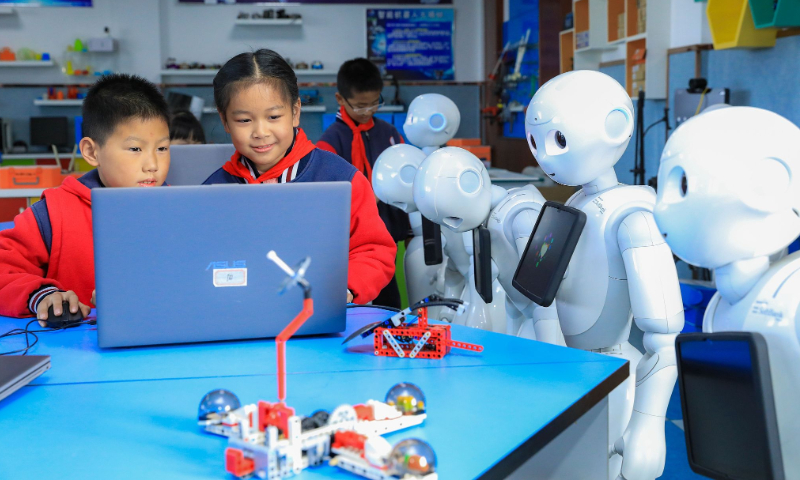By News Desk
Several regions in China, including major cities like Beijing, Guangzhou, and Chengdu, are introducing artificial intelligence (AI) education into primary and secondary schools. These regions have launched detailed implementation plans specifying class hours for each grade level, creating a continuous learning framework from primary to high school, and linking AI coursework with students’ overall academic evaluations.
According to a report, starting this fall semester, all primary and secondary schools in Beijing will integrate general AI education with at least eight class hours per year. The new policy outlines a seamless transition for AI learning across school stages and incorporates AI course performance into students’ comprehensive quality assessments.
The Beijing Municipal Education Commission stated that AI lessons can either be taught as standalone subjects or integrated with fields like information technology and science. The curriculum will focus on four main areas: foundational concepts, AI applications and technologies, practical implementation, and ethical and societal impacts.
In Guangdong Province, similar AI education regulations have been introduced. The curriculum is divided into four segments: AI and life, implementation technologies, practice and innovation, and AI in society. At the primary level, students are introduced to simple machine learning ideas and human-AI interaction using graphical programming. Junior high students analyze how data, algorithms, and computing power interact. High school students go deeper into machine learning, deep learning, and current AI trends and applications.
The Guangdong curriculum further requires students to learn essential data labeling techniques, handle incomplete or inaccurate data, and understand key algorithms like classification, clustering, and decision trees. It also introduces core AI applications in areas such as speech and image recognition, natural language processing, biometrics, and generative AI.
A high school in Chengdu is working with universities and tech firms to offer specialized STEM courses in fields like robotics, drones, computer science, chemistry, and smart cities. The aim is to help students explore career paths aligned with their interests and strengths, as reported by China News Service.
The Beijing regulations also emphasize integrating AI evaluations into comprehensive student assessments. Students will be tested through written exams, project presentations, work exhibitions, and themed debates, with progress monitored via digital learning portfolios that record their achievements and skill development over time.
To further strengthen AI education, Beijing plans to use local tech resources, including universities, research institutes, and innovative enterprises, to support learning.
